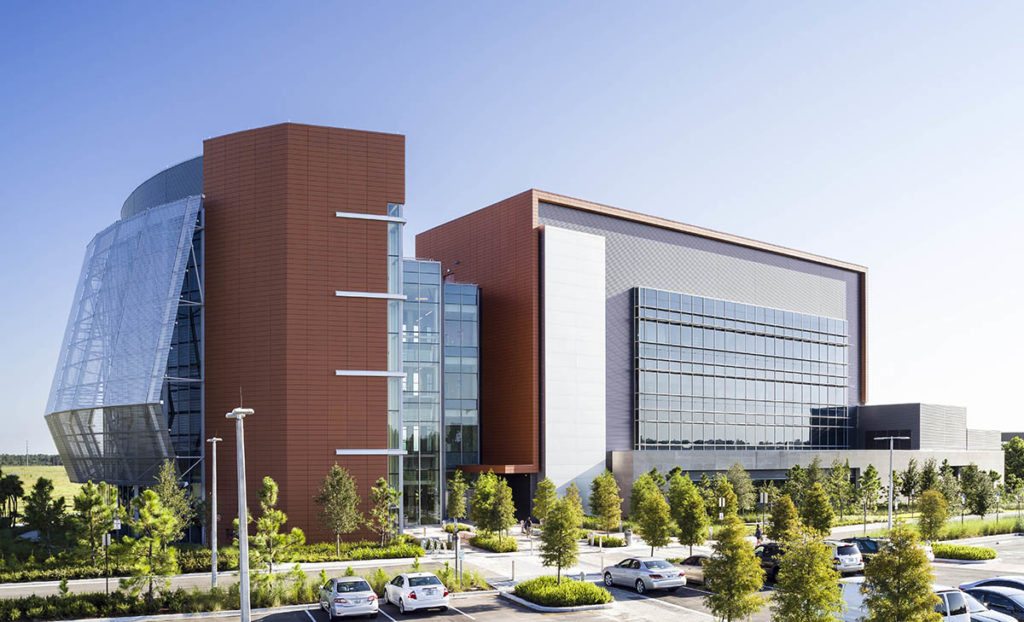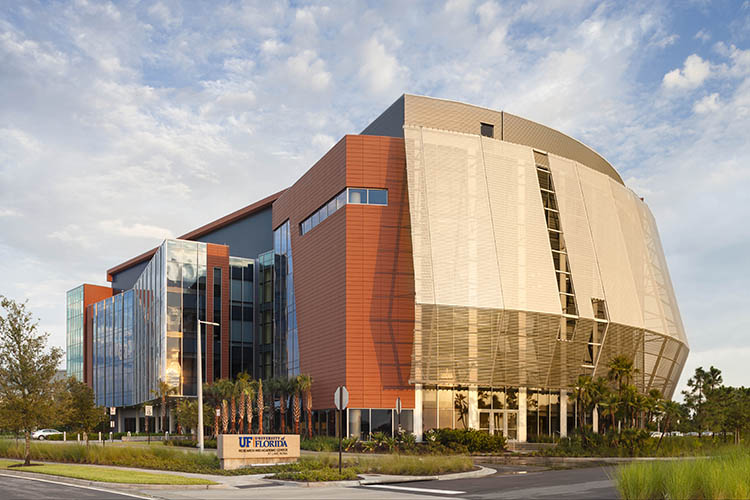The opening of the UF Research and Academic Center in 2012 allowed for the expansion of the UF College of Pharmacy professional Pharm.D. program into Medical City. The Lake Nona campus accepts approximately 80 students each year in the fall semester, with a total Orlando enrollment of about 280 students in the program at any given time.
Student pharmacists at Lake Nona receive the same curriculum as classmates in Gainesville, Jacksonville and St. Petersburg. In addition, they benefit from access to the UF College of Pharmacy’s Center for Pharmacometrics and Systems Pharmacology, also housed at the Lake Nona facility. The center uses sophisticated mathematical modeling and computer simulations to mimic clinical trials of new drugs. Upon graduation, they will work in hospitals, at compounding pharmacies, and at retail pharmacies alike. This demanding role is one that comes with a wealth of benefits for students entering into the field.
Getting Into the Pharmacy Program
Students come to the UF Doctor of Pharmacy program in Lake Nona after earning their pre-requisites at another college or university. These classes often include Chemistry I and II, Organic Chemistry I and II, Physics, Calculus, Biology, Physiology and Anatomy, to name a few. Once these classes are complete, the student applies for admission into the pharmacy school.
While the overall grade-point average is important to gaining admission into the program, the GPA earned in science courses tends to be what matters the most. To remain competitive, students are encouraged to have upwards of a 3.0-3.3 to stand out among applicants.
“It used to be one out of every five students was admitted to the program,” says Erin L. St. Onge, Pharm.D. Assistant Dean and Campus Director/Clinical Associate Professor at the University of Florida College of Pharmacy program in Orlando. “Just because you might have taken certain courses and passed, that doesn’t mean you are guaranteed admission into the program. Pharmacy school is a whole new application and acceptance process.” While the only degree offered at the UF Pharmacy Orlando campus is the Doctor of Pharmacy degree, there are a couple of joint degree programs available through the distance programs.
Exploring Job Opportunities
When students graduate from the UF Doctor of Pharmacy program, there are a number of different job opportunities waiting for them. More than half of all graduating students will go on to work in a community pharmacy. The others go on to do a residency of some sort. While residencies aren’t required, many students benefit from partaking in them.
“Pharmacy school isn’t like a traditional medical school where you have to complete a residency before you are allowed to practice,” Dr. St. Onge says. “Many pharmacists end up specializing in a particular area of medicine along the way.” Residencies are practice-based, while a fellowship is research-based. A residency will last an average of one to two years, while fellowships are often two years.
Students can practice in critical care, infectious disease, pediatrics, emergency medicine and so on. Generally, those pharmacists who specialize in one type of medicine work collaboratively with physicians, nurses and physical therapists. “This inter-professional group of individuals gathers information and provides the patient with the complete level of care that they need,” Dr. St. Onge explains. “These individuals are referred to as clinical pharmacists or hospital clinical pharmacists. There are also nuclear pharmacists, but those are quite rare.” There also are compounding pharmacists who specialize in compounding and creating special medications for patients.
“Pharmacists in general compound or mix certain things,” Dr. St. Onge says. “However, these professionals go beyond that in that they specialize in making medications.”
Impacting Patient Care
Pharmacists don’t simply dispense medication, they can have a major impact on a patient’s care and outcome. Pharmacists look at medicinal chemistry, how drugs are structured, what their side effects are, and how they work as a whole. “They are experts in the field of medicine,” Dr. St. Onge says. “Even though a pharmacist might not be the one to diagnose a patient, they definitely know which medicine is going to help treat the condition the best.” Due to this expertise, many fellow healthcare providers often seek their advice and input on a regular basis.




